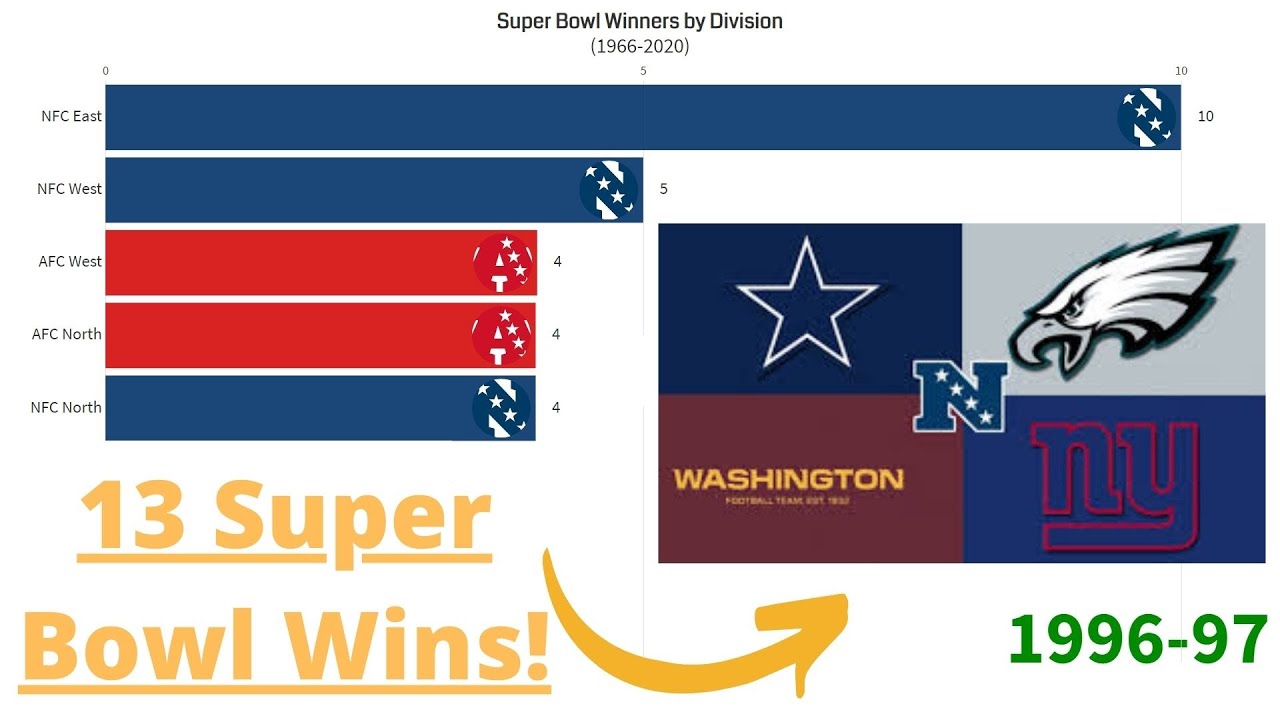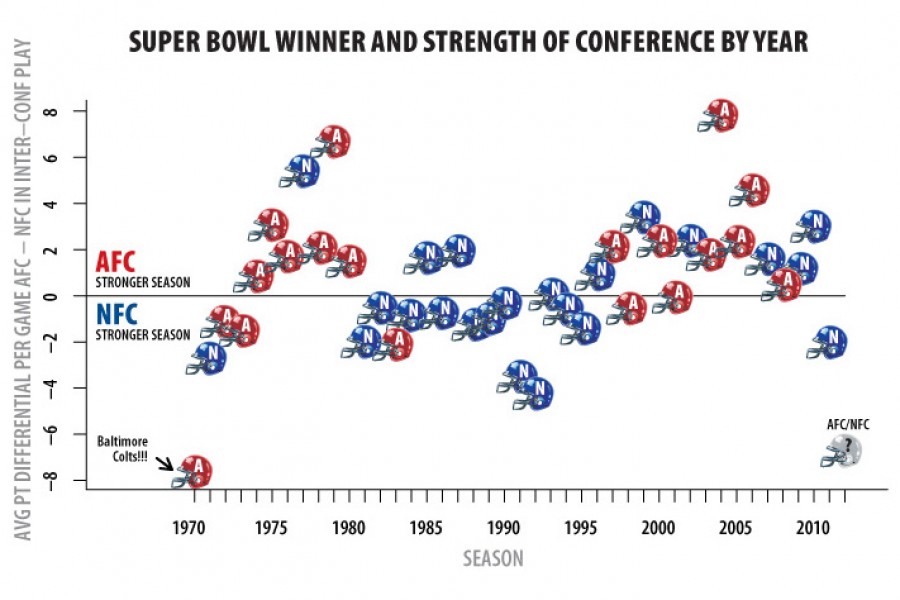Who won the super bowl more afc or nfc

bravadoaustralia.com.au › story › sports › nfl › /01/22 › nfl-playoffs-w. Super Bowl champion Kansas City Chiefs, led by last year's Most Valuable Player in QB Patrick Mahomes. In the NFC, the tile game will be in. However, the NFC leads the amount of Super Bowl wins at 27 won Super Who won the super bowl more afc or nfc, with the AFC just trailing behind with 25 Super Bowl wins. The AFC. The Chiefs and New England Patriots account for five of those six AFC victories, with the lone exception being Super Bowl 50 when the Denver.
Super Bowl Indicator: Premise and History
AFC vs. NFC
Research expert covering sports and video gaming. Profit from additional features with an Employee Account. Please create an employee account to be able to mark statistics as favorites. Then you can access your favorite statistics via the star in the header. Profit from the additional features of your individual account.
Currently, you are using a shared account. To use individual functions e. If you are an admin, please authenticate by logging in again. To access this feature you need a Statista Account. Register for free. Already have an account. You need one of our Business Solutions to use this function.
View Business Solutions. Statista Accounts: Access All Statistics. Basic Account. You only have access to basic statistics. Starter Account. Who won the super bowl more afc or nfc The ideal entry-level account for individual users. Professional Account. Business Solutions including all features. Statistics on " Super Bowl " The most important statistics. The most important statistics. Basic Statistic Super Bowl attendance in the U.
Basic Statistic Planned average spending of U. Super Bowl: dollar sales growth of consumer product categories Further Content: You might find this interesting as well. Statistics NFL teams U. Learn more about how Statista can support your business. Pro Football Reference.
February 12, In Statista.  Correction - Feb. Vintage Value Investing. The Street. CME Group. Table of Contents Expand. Table of Contents. How It Works. The Bottom Line. Markets Stock Markets. Article Sources. Investopedia requires writers to use primary sources to support their work. These include white papers, government data, original reporting, and interviews with industry experts.
Correction - Feb. Vintage Value Investing. The Street. CME Group. Table of Contents Expand. Table of Contents. How It Works. The Bottom Line. Markets Stock Markets. Article Sources. Investopedia requires writers to use primary sources to support their work. These include white papers, government data, original reporting, and interviews with industry experts.
We also reference original research from other reputable publishers where appropriate. You can learn more about the standards we follow in producing accurate, unbiased content in our editorial policy. Compare Accounts. The offers that appear in this table are from partnerships from which Investopedia receives compensation. This compensation may impact how and where listings appear. Investopedia does not include all offers available in the marketplace.
Related Terms. Spurious Correlation: Definition, How It Works, and Examples In statistics, a spurious correlation, or spuriousness, refers to a connection between two variables that appears causal but is not. Learn why it matters. Anomaly: Definition and Types in Economics and Finance An anomaly is when the actual result under a given set of assumptions is different from the expected result.
Over-Under Bet: Definition, Types, and Examples Over-under bets, or total bets, are a wager that the point total for a game will be larger or smaller than a sportsbook predicts.